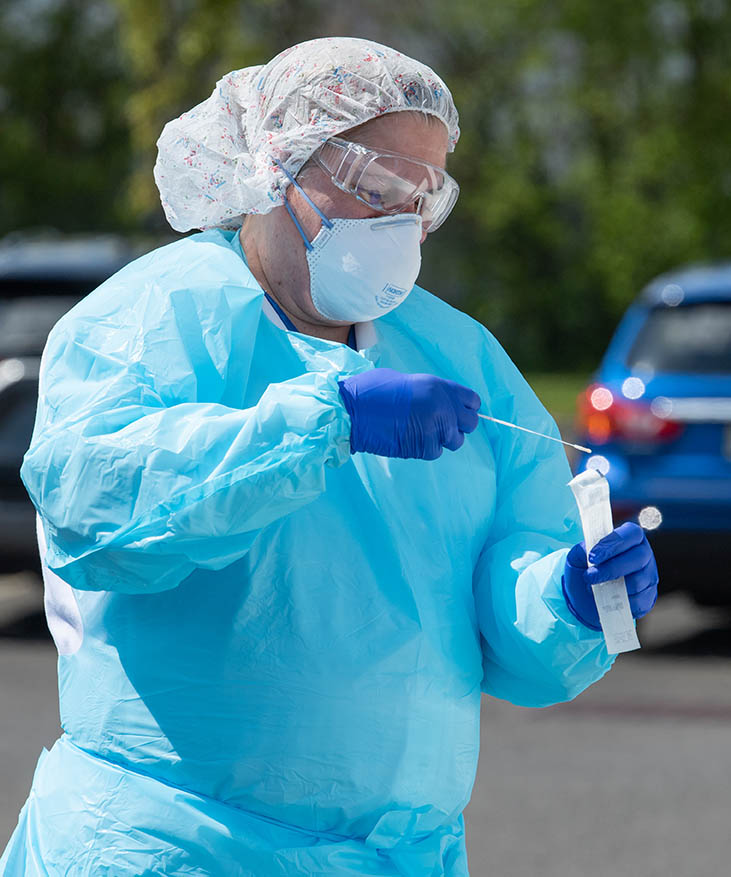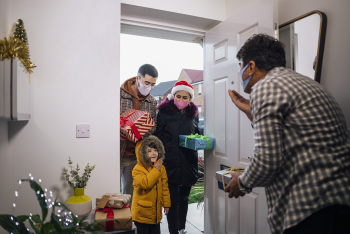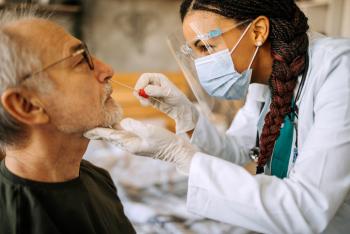Long COVID refers to a range of persistent symptoms that can linger for weeks, months or years after...
Read More
In the year of uncertainty, one thing is for sure: Wearing a mask, practicing social distancing and washing your hands help slow the spread of COVID-19. Although these terms are now commonplace, many are unsure of what to do if they experience COVID-19 symptoms. When it comes to testing, timing is critical. Here's what you need to know.
Not everyone should be tested. If you have the characteristic COVID-19 symptoms like loss of taste and smell, shortness of breath or fatigue, the first step is to speak with your health care team immediately.

“Testing is used to identify and confirm COVID patients, including those with COVID like symptoms and those who don’t have symptoms but know they have been exposed. This way, we can trace exposures and stop the individual from spreading the virus further,” said Evelyn Balogun, M.D., medical director, Inspira Urgent Care. “If you have symptoms or not, you should stay home and quarantine while you wait for your test results. If you get a positive result you should quarantine for at least 10 days. If you have symptoms and your test is negative, follow-up with your healthcare provider to discuss what non-COVID illnesses you might have and if you should still quarantine.”
If you are exposed to someone who is COVID-19 positive and you remain symptom free you should contact your primary care physician regarding how long you need to quarantine and testing guidelines –they continue to change.
If your health care provider recommends you get tested, if you have had a suspected exposure or if you need a test for work or travel purposes, there are a few things you need to do to prepare.
“Symptoms can present anywhere from 2 to 14 days after exposure—meaning if you were tested, but were exposed to the virus the day before, your test could show up negative despite being infected,” said Dr. Balogun. “Additionally, we don’t yet know how long a person is contagious. CDC and other sources generally suggest that people are not likely to be contagious after 14 days.”
If you are experiencing symptoms, or suspect you’ve been exposed, try your best to quarantine and isolate until you determine your next steps. To ensure an accurate test result and the safety of others, be sure to speak with your health care provider and follow their recommendations for pre-test protocols.
Currently, the two COVID-19 test categories are diagnostic tests—which look for active COVID-19 infections—and antibody tests—which look for previous COVID-19 infections.
“For current infections, there are two types of tests: a PCR and a rapid antigen test. A polymerase chain reaction (PCR) test is a “molecular” test that looks at the sample’s genetic makeup to identify active virus particles. Because your sample is analyzed in a lab, it can take anywhere from 2 to 5 days for a result,” said Dr. Balogun. “Conversely, the rapid antigen test just looks for certain virus proteins and results can be returned in roughly an hour.”
In addition to the different tests, each has its own respective testing format. “While PCR and antigen tests require a nasal, throat or saliva swab, the antibody test usually just requires a blood sample,” said Dr. Balogun. According to the U.S. Food and Drug Administration (FDA), molecular tests (PCR tests) are highly sensitive and highly specific compared to antigen tests which are highly specific, but not necessarily as sensitive.
Testing varies by local and state guidelines. To schedule a test with Inspira Urgent Care, call for an appointment. A list of Urgent Care sites offering testing is available online. Testing locations may change over time.
“As more testing becomes available, and vaccines are rolled out, we must continue to be vigilant about upholding the preventive measures we have been doing since March. The only way we will get through this is if we stick together,” said Dr. Balogun.

Long COVID refers to a range of persistent symptoms that can linger for weeks, months or years after...
Read More
A Very COVID Christmas: How to Celebrate Safely
Read More
After more than two years of masks, social distancing and travel restrictions, this winter is likely...
Read More